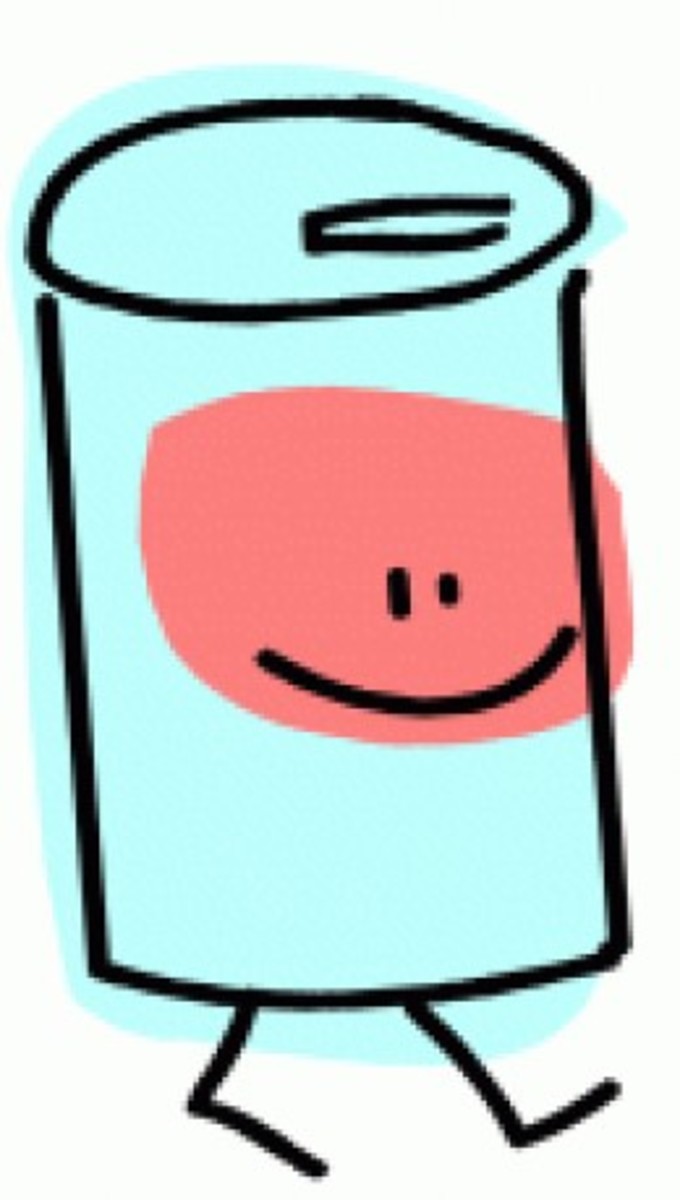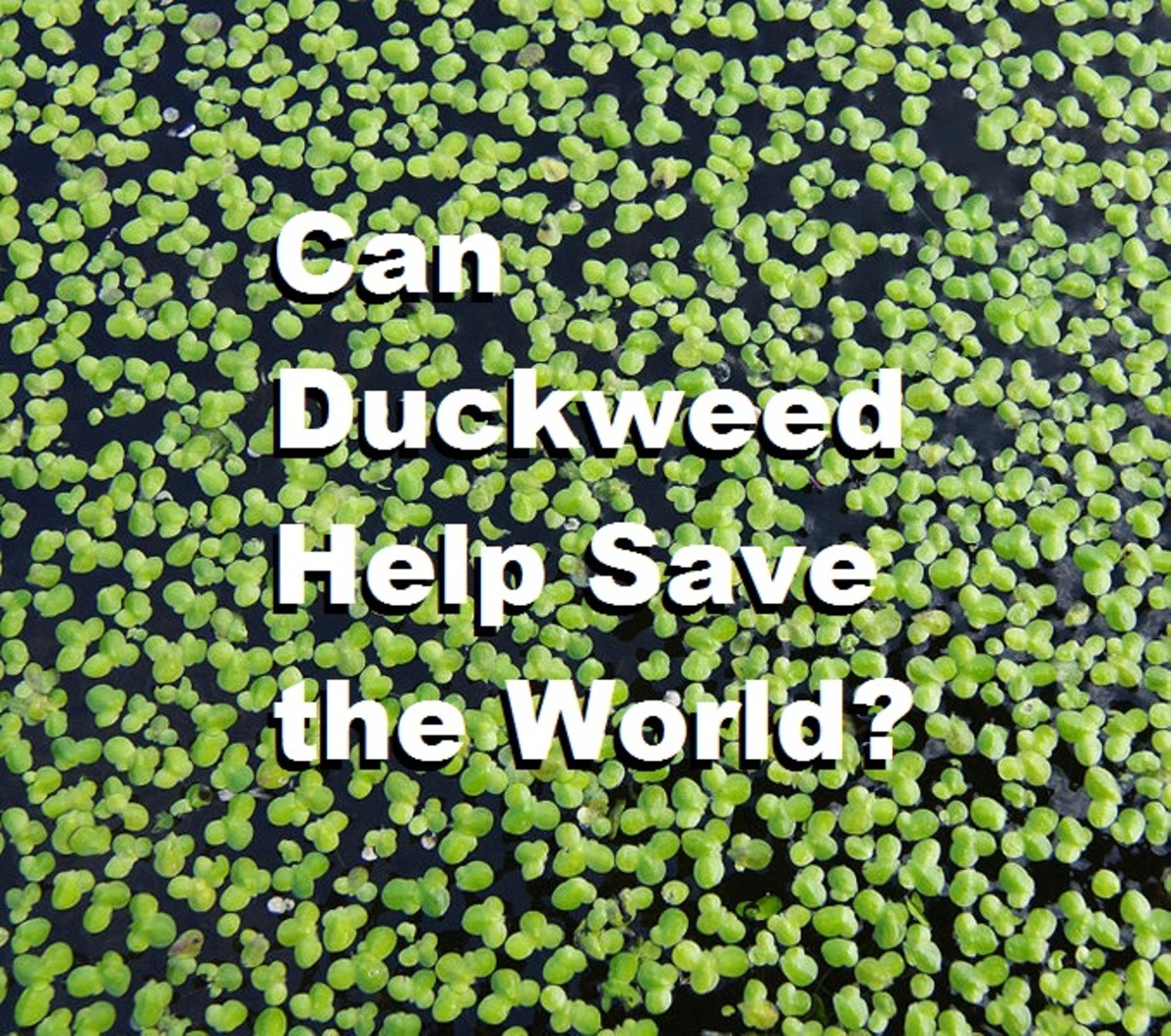California is Running Out of Water: 10 fun tips to help do your part
Are we actually running out of water?
Yes, California has had 3 consecutive years of extreme drought and is currently experiencing the consequences of a now 15 year drought that has plagued the entire western region of the United States. We have all lived through apparently similar disasters such as the US' current budgetary crisis, the problem is we cannot print more water.
Once we run out of water, there's nothing we can do to get it back. Shipping water from the East would be impossibly insignificant in terms of our total demand for water, and we lack sufficient pipelines to transfer this scarce natural commodity. In short, once its gone, its gone.
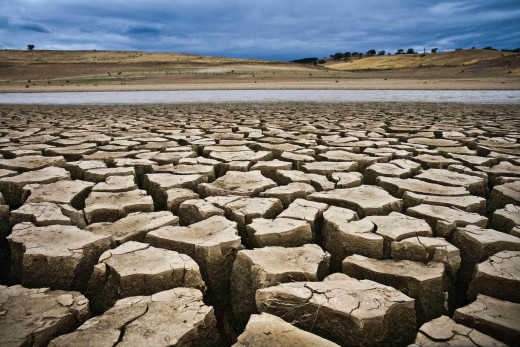
Ok, but when is this going to happen?
According to Jay Famiglietti, a leading resource scientist at NASA's JPL, we are in quite dire straights. At our current rate of consumption, the best estimate is that we have one year of water left in our reservoirs. We have been in a struggle to manage this dwindling resource for the past 100 years, and are now living in an age where we might quite literally see this effort run dry. For those of you keeping score at home, that is 12 months, 52 weeks, 365 short days until we reap the consequences of our mindless consumption.
Oh damn... this is super bad isn't it?
This is indeed super duper bad. Beyond our obvious basic need of water for survival, one cannot begin to fathom how precious this resource actually is to every aspect of our survival as a society. If we run out of water, essentially every other fundamental process goes out the window with it. With no water, we cannot grow crops, we cannot feed livestock, we cannot sustain the infrastructure needed to power our homes and lives.
There is no replacement for water, as it is a primary component of any potential substitute. You might say, that's fine, I'll just switch to drinking beer. As tantalizing a theory as that is, without water we would have no solute in which to ferment beer, and no way of growing the barley, malt, hops or yeast that this process also requires. Every other idea for a potential substitute for water can follow an analogous dismantling. If we don't have water, we are screwed. Plus, no beer.
Drought Monitor as of March 2015
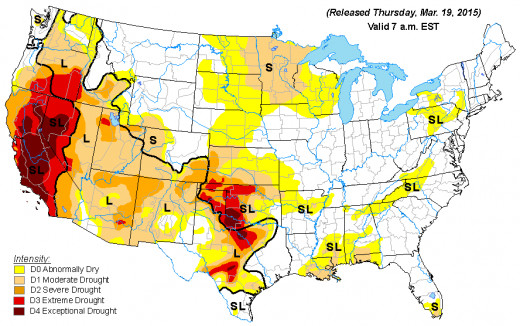
Alright, I'm on board, what can I do?
There are two parts to this equation, the rate at which water enters our reservoirs, and the rate at which we are depleting said reservoirs. Since any and all attempt to summon rain gods has failed, our only hope is to limit our immense consumption. The entities which are ultimately responsible for this consumption are us, the consumers of the commodity.
Although the actions of single individuals are often discounted as a proverbial drop in the bucket, if everyone gets on board, we can actually make a dent in the consumption of household end users. For the moment, let's forgo discussion of governments as a possible contributor to this effort, as I will discuss this noteworthy point later. In this discussion, I will address key suggestions for the everyday consumer that reflect the relative importance on the following chart.
US indoor household uses of water
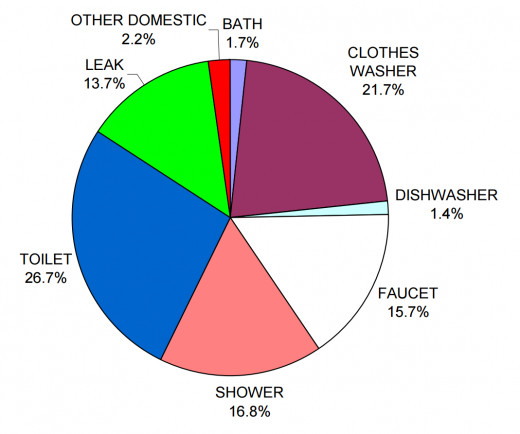
#1: Answer nature's call, in nature
As the helpful pie chart from the EPA shows above, about 27% of water used inside US households goes right down the toilet drain. Now, the advent of the modern toilet has done much to better our living conditions as a species, I'm not here to argue that fact. What I think we can do is to limit the amount of water that is being flushed down these drains.
For anyone with the requisite equipment, I will suggest my personal favorite system of decreasing toilet flushes, simply piss outside. You probably have a thirsty shrub in the backyard that wouldn't mind a few liters of sterile moisture, and I'm sure you'll find the experience both exhilarating and altruistically rewarding. In my opinion, the ratio of number ones to number twos, and the consequential portion of water saved is enough to justify this practice.
A typical toilet flush can use about 3 gallons of otherwise suitable drinking water. Just think about how long it would take you to drink that much water next time you are literally pissing it away. I personally don't think my desire to excrete urine indoors justifies such an egregious overuse of a valuable commodity. If you have to use the toilet, or want to be even more responsible, consider installing a graywater system that supplies your non-potable water needs.
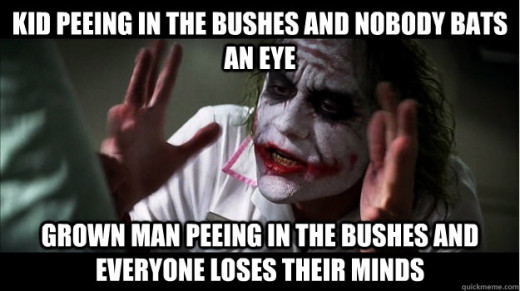
#2: Live authentically vogue
I will never understand why people will pay hundreds of dollars to purchase an item of clothing that looks old and dirty (aka vintage), and then compulsively wash and/or replace them. A more economically and sustainably viable option would be to do this dirty work yourself. Maybe that pair of jeans doesn't need to be thrown into the hamper after every use. Maybe you don't need three wardrobe changes throughout the day, and perhaps these items aren't as putrid as you think, after just a few hours of use.
What I want you to do is consciously think about how much water is being used to make your clothes clean, and weigh that against how disgustingly vile your ensemble actually is. My guess is, if you didn't just hit the gym, your shirt can be nicely folded and instantly ready for another use without the unnecessary depletion of one of our most scarce and valuable resources. If your clothes smell like they need to be washed, absolutely wash them, but take a moment to think about the implications of your everyday use of water.
#3: Embrace the grunge
I do not condone transforming the bulk of Californians into an unflattering pile of meandering stink, but I do think that we could address some issues in the second most wasteful household utility, the shower. I get it, you want to smell good, and I appreciate you for this. What I do not appreciate is running the shower for upwards of 15 minutes, turning a grooming experience into a spa day. Next time you get in the shower, set a 5 minute timer on your phone. Better yet, plug the drain so you can visually see how much precious water you are using to clean your body.
Now that we have covered shower duration, let's touch on frequency. Yes, you should shower after the gym or otherwise sweating profusely. If you think you smell bad, or especially if anyone else thinks you smell bad, definitely hop in a for a timely rinse. The shower should be a practice in necessity, not pleasure or routine. You do not need to take multiple showers a day. If you do, you are either very active or something is desperately wrong with you. For each of these reasons, we will allow you a pass.
If you live near the ocean, like I do, no one will hold it against you if you count a surf session as fulfilling your daily shower quota. If you have access to a pool, swimming a couple laps is a great way to hybridize fitness and personal cleanliness. If you have a chinchilla, pick up some spare dust bath during your next visit to Petco. If nothing else, this will allow you an intimate view into the fascinating life of your furry companion. Get creative and always be conscious of the consequences of your actions.
#4: Mind the tap
This one is super simple, but I see people violating basic logic at this appliance almost on a daily basis. Things need to get clean, and for now the best thing we have come up with is to squirt precious water on everything. One day, I hope we will evolve past this admittedly archaic system, but in the meantime let's try to be responsible about it.
My approach to this problem is a one step plan. Step one, don't leave the faucet running unless there is something under it. If you have to, employ the same system as with your shower, plug up the drain and watch as you empty our vital reservoirs into your sink. The volume of water that exists after you brush your teeth or wash a spoon is the exact amount that you have personally depleted from our communal reserves. Feel responsible for this.
#5: Plug your leaks
An astounding portion of our water is not even used, it is being wasted for no productive reason. Leaks are responsible for around 14% of our water usage at home, which is a number I am disgusted by. The cool thing is, you don't even have to actively chase down leaks, as it is relatively easy to determine whether they exist in your domain.
Follow this guide and feel good about yourself. First, turn off everything that squirts water out of it. Second, travel to your water gauge, which is located conveniently outside your house. Finally, if you see the number is inexplicably climbing, call a plumber. You will save money in the long run, so this expense is no excuse for negligence.
#6: Down at/with the car wash
I literally haven't washed my car since high school, when it was one of my adolescent responsibilities, and I am now a grown ass man. The surprising thing is, in terms of cleanliness, my car looks the same as everyone else's. Once in a while, I will use the window scrubbers at the gas station to ensure proper visibility. That's all you really need.
Sometimes, it actually does rain, and I call this an economically/guilt free car wash. Hilariously enough, this all-too-frequently and situationally ironically happens right after my girlfriend takes her car to the wash. I then employ a self-righteous imaginary high five with mother earth. You should try this, it feels good.

#7: Responsible shrubbery
There is no conceivable way that the satisfaction garnered from a blue-ribbon yielding front lawn justifies the immense cost of maintaining such an endeavor. It is one thing to water a plant that is capable of producing fruit or vegetables which can in turn provide you with sustenance. It is quite another to surrender a similar host of resources to a venture that will ultimately contribute to nothing but an incessant desire to keep up with the Joneses.
If you really do require an elegant selection of worthless flora to adorn your home, at least plant species that are indigenous to your area or something that is drought resistant. Your neighbors will admire you for your new found commitment to rationality. If they don't, they're not really your friends. Once your new, responsible assortment of lawn candy is in full bloom, do not water it like you would a dehydrated camel. This defeats the purpose.
#8: Tactical watering
Now that you have a reasonable selection of plants, they will need to be watered from time to time. Luckily, there are steps you can take to ensure this practice is done so responsibly. You should water your plants in the morning or evening, when the UV index and the wind is low. This minimizes evaporation and makes your watering efforts more efficient.
If you have an automated sprinkler system, make sure it is not over-watering your new adaptive shrubbery. These plants require much less water than their wasteful cousins. Finally, make sure the nozzles are pointed in the right direction. Any water that lands on the street or driveway will evaporate and thereby be a complete waste of your and my resources.

#9: Modernize your appliances
Another way to save money, and water, in the long run is to update the appliances in your home. Dual flush or low flow toilets will make your efforts of excretion that much more pleasurable. Efficient shower heads and faucets will make the drain plugging game that much easier to win. Smart watering systems ensure your luxuriously luscious lawn doesn't come with a costly consequence.
Everything that uses water in your home has a more contemporary and efficient upgrade. It is your responsibility to consciously analyze their potential benefit in both environmental and economic realms. If you have questions, stop by your local hardware store and ask away. I'm sure they will jump at the opportunity to sell you something. That being said, maybe do some online research first.
#10: Hold the carne
This one really sucks, but if you really want to take your conservation efforts to the next level, consider limiting the amount of meat you ingest. The fact of the matter is, every pound of beef that makes it to our table has used about 1,800 gallons of water to make it there. When we put this in perspective of pinching shower time and 3 gallon toilet flushes, it really hits home. That's a lot of ones and twos.
Comparatively, other staple food sources require much less water to produce. For example, a pound of corn only takes 108 gallons. That's still a lot of water, but you're effectively saving nearly 1,700 gallons of water, which is about how much fits in this big old truck shown below. Yes, these numbers are unbelievably high, I know that and have consequently included a link to an illuminating report below the big old truck.
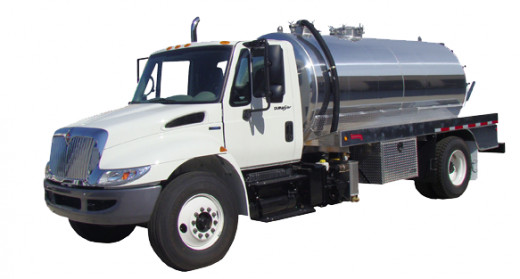
Look at all the good you've done
I will be the first to admit that your personal actions don't really matter, but your newly accessed, hopefully not overly pretentious, jua de vive will slowly force society's consciousness into a more sustainable realm. That's something to be proud of. After all, when changing the world, what better place to start than you?

On second thought... we're probably still screwed
The real problem lies, as it all-too-frequently does, with the people we have trusted to run our society. If everyone in the nation followed these guidelines, the biggest impact would be on our levels of self-satisfaction, though this could trigger massive public discontent with the government's comparative irresponsibility. Household use in the public sector accounts for only about 4% of our total water use. The vast majority of the remainder is due to agriculture, which is highly manipulated by the government via subsidies and tax-incentives.
We are growing close to 30% of our agriculture in California deserts, and using up 80% of our water in the process. The reasons we are doing so will unfortunately likely perpetually escape me.
It's not only a matter of where we are growing, but what we are growing. Through heavy subsidization and consumer misinformation, we are inefficiently manipulating the free market into producing foods that are unnecessarily damaging to our livelihood.
Still... this will save you monies
If my degree in Economics has anything to say about it, water is about to get super expensive. It experiences relatively inelastic demand, which means we need to use it regardless of the price, and it is increasingly scarce. These factors contribute to an undeniable future problem for you. Good news is, you are now well equipped to deal with this inevitable price spike. If you follow the guidelines I have outlined above, you will be on your way to successfully navigating this disaster. If you start to acclimate to these tips now, it will undoubtedly save you money in the future. All that's left is to hope everyone else gets on board as well, or else we're in for quite a rough one.




